Say No To Glass Chopping Boards
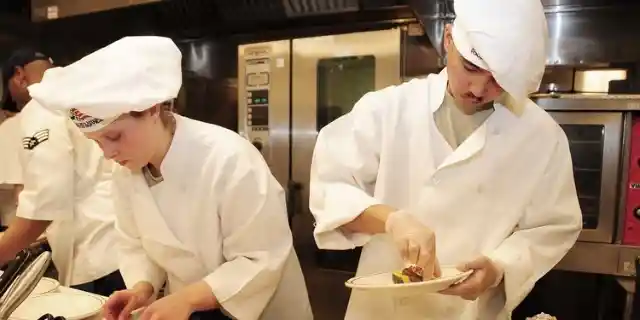
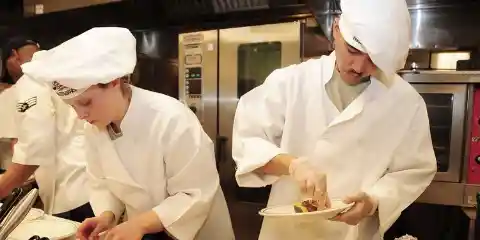
People eat every day; usually, more than once a day. This being the case, it makes sense to eat the food you have at home in your refrigerator, assuming you know how to cook it properly. While learning a new recipe might seem like a good idea, eating at a restaurant or ordering take-out is often just faster and easier than all that accompanies creating a meal in your own kitchen.
Even trained chefs sometimes make mistakes in the kitchen. From using the wrong ingredient or overcooking pasta, to not washing your hands after touching raw meat, there are a plethora of cooking no-nos that everyone should know. Whether you’re an amateur at-home cook, or a professional, here are some important lessons that can be learned from the world’s top chefs…
Do’s And Don’ts From A Chef
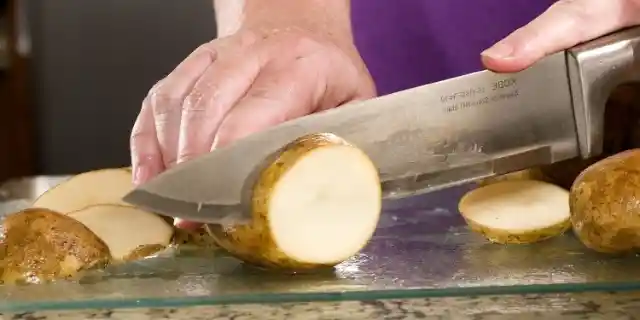
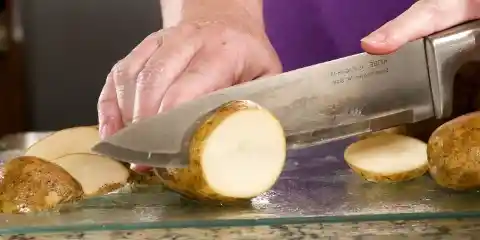
For me, the biggest no-no in the kitchen is glass cutting boards. Whenever I see one, I think to myself – seriously? While on the subject of cutting boards, it’s also important to make sure that you clean them thoroughly between uses. You also need to be able to recognize when it’s time to replace them. Wood and plastic make for a better cutting surface than glass.
I’ll always pick these materials for a cutting board over glass. However, with that said, even the surfaces of these chopping boards will start to shred and groove over time, which results in nice little crevices for food to become caught in, and germs to breed. Another thing to watch out for is dangerously dull knives. Sharpen them regularly, and keep cooking. Reddit user: PaintDrinkingPete
Glass Shards Were Everywhere
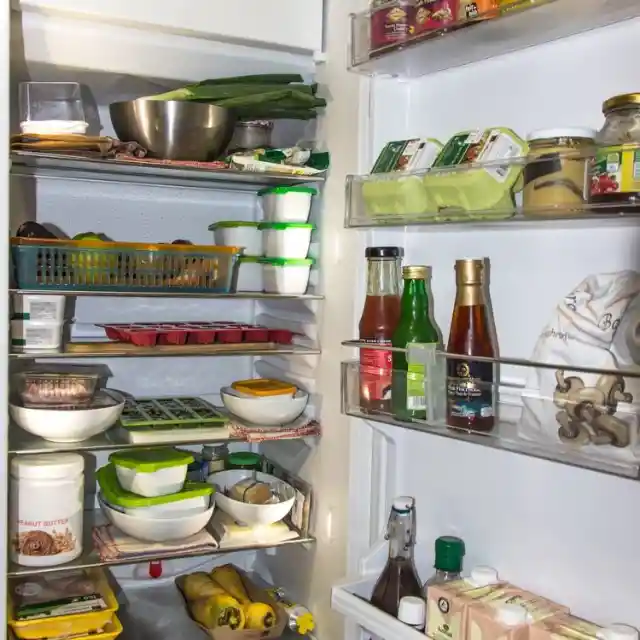
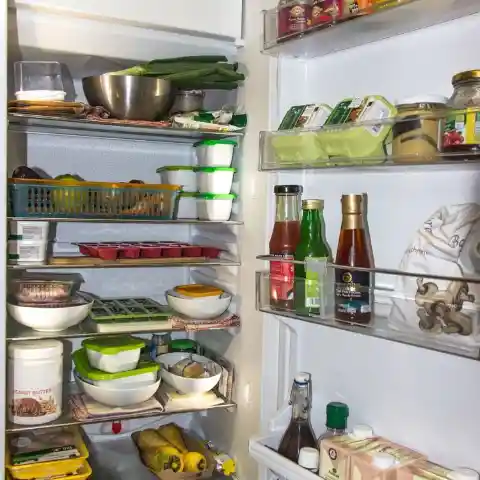
I’ve been a chef for ten years. Here are some good things to keep in mind when cooking at home. Clean as you go; don’t save it all for the end of a cooking session. It minimizes clutter and mess, and makes everything easier. Sharpen your knives; dull knives can be very dangerous. Blenders are not just for smoothies. You can use them for sauces, too, and your life will be forever changed in the kitchen.
Stack your fridge appropriately, so cross-contamination doesn’t happen. Veggies and fruit on top, as well as eggs; beef, fish, and poultry should go on the bottom, so the raw meat juice doesn’t contaminate your fresh fruits and vegetables. Also, check the expiration date on your olive oil. Yes, it can go bad, although for some reason lots of people think it’ll last forever. Reddit user: bendingriver
Read The Instructions Twice
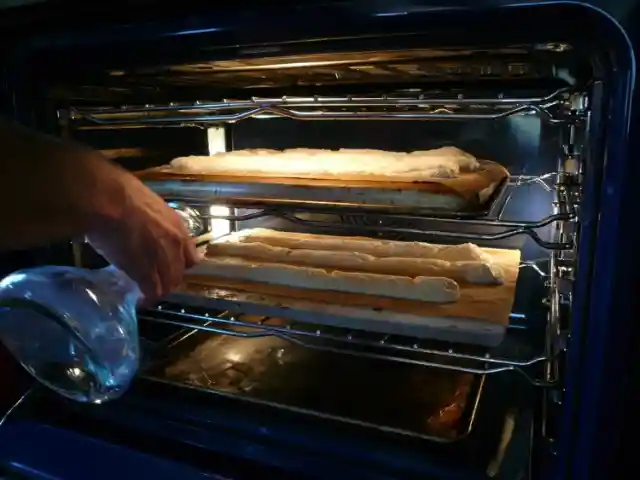
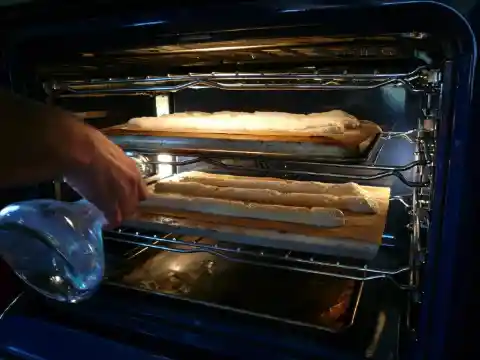
I’m not exactly the most proactive person when it comes to cooking, and I ended up learning the following lesson the hard way: you should never use a wet potholder to get a hot pan out of the oven. I realized, once I did this, that it basically renders the potholder useless, and I ended up burning my hand, while also dropping my food.
Another thing that I learned, unfortunately again the hard way, is that when you decide to bake some nice, warm bread, don’t add cold water to a hot Pyrex container that has been in the oven for a few minutes to make steam. In the back of my mind, I knew what was going to happen if I did this, but I stupidly did it anyway. Next thing I know, there was a BOOM, and glass shards flying everywhere. Reddit User: TwinkiWeinerSandwich
One For The Pasta Lovers
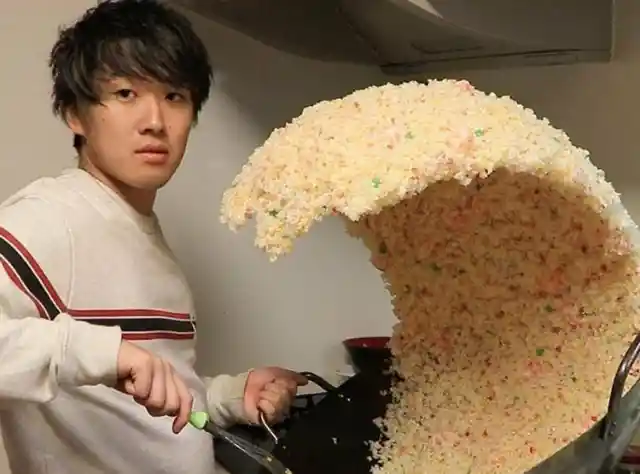

I once sprained my wrist trying to cook rice. The recipe called for “8 cups cooked rice.” I somehow read it as “Cook 8 cups of rice.” We kept transferring it to larger and larger pots, until it was in our huge stockpot, and had the consistency of half-dried cement. I pulled the spoon through the goop, felt a POP, and stopped immediately.
That’s when I knew that not only was the rice in trouble, but so was I. I ended up going to the emergency room to check what’d happened, and luckily it was just a sprain. Let’s just say I make extra sure that I read the instructions now more than once. I still have trouble with that wrist, and it’s been several years. Reddit user: [redacted]
Make Sure To Prepare Your Spices
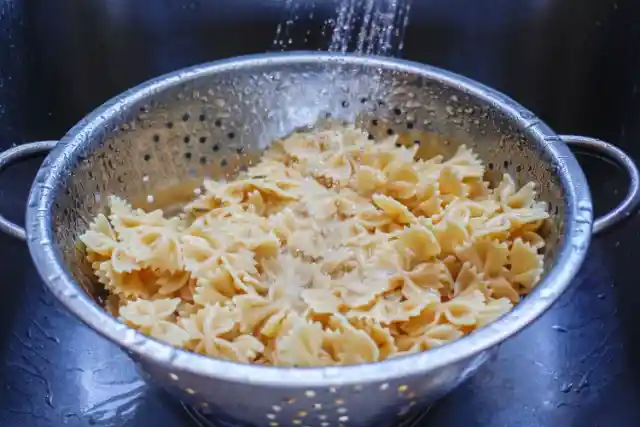
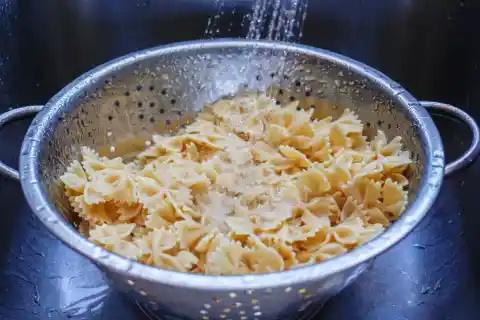
I’m about to tell you that you’ve been making pasta incorrectly your whole life – but don’t worry, there’s still time to fix the situation. My main no-no is rinsing your pasta. Don’t rinse your pasta. Pasta should never, ever be rinsed for a warm dish. The starch in the water is what helps the sauce adhere to your pasta, so take note pasta-lovers.
There is a time when you should rinse your pasta, however. The one and only time that you should be rinsing pasta is when you’re going to use it in a cold dish, such as a pasta salad, or when you’re not going to be using the pasta for a hot dish immediately. To all those pasta sauce lovers, you’re welcome. Reddit user: HoboBeered
Oil vs. Water
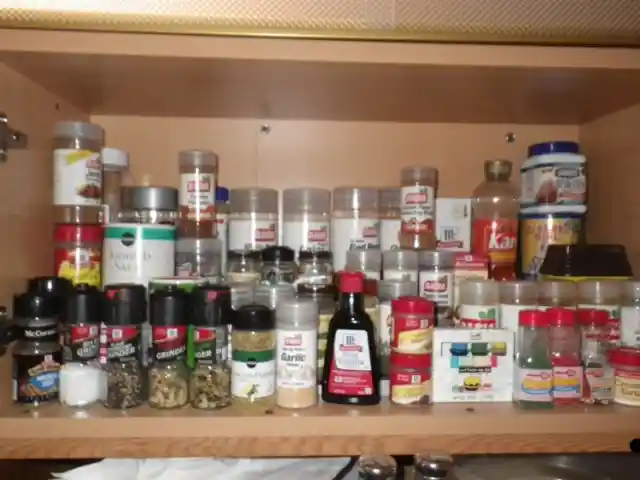
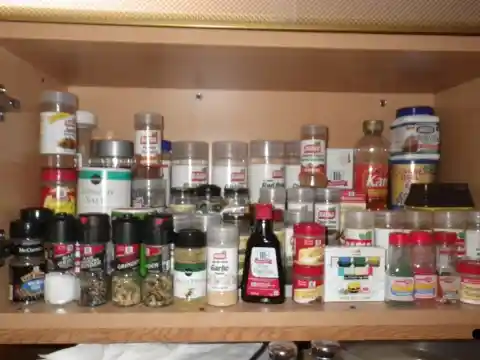
Never pour spices directly into a steaming pot on the stove; the spices will congeal in their containers from the moisture introduced by the steam. Instead, put the spices in a separate side container, then add them to a steaming pot. If you sprinkle the spices in by directly tipping the jar/box over the pot, steam will enter the container and stay trapped in there, causing congealing.
Buy some small ramekins, or small glass containers, that you can prep your spices in, to protect them from congealing. It’s important to prepare your flavorings in advance, just as it’s essential to pre-cut some of your meats and veggies before making dinner, or other meals. It makes the process quicker, easier, and more fun as well. Reddit user: [redacted]
Make Sure You Have Heat Protection
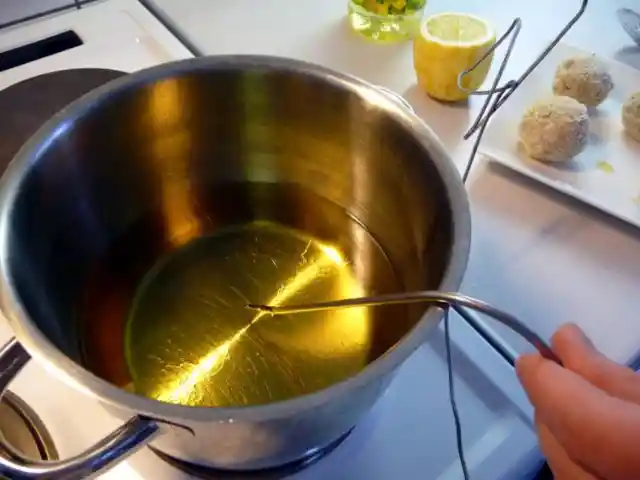
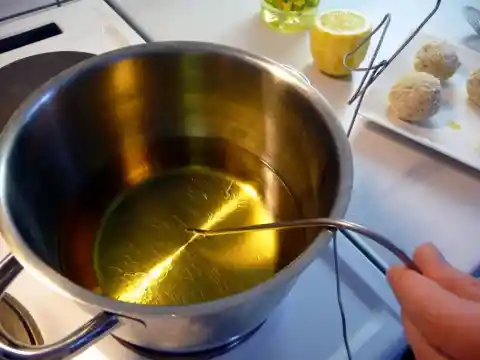
I’m not a chef yet, but I love cooking. We get to do it in Home Economics, and I’ve seen some people make some serious mistakes. One day, when I was in class, I saw a girl burn herself badly, because she didn’t listen to our Home Ec. teacher. She had emptied her hot oil in the sink with the cold water running while she did it, and…BOOM!
She ended up having hot oil sprayed all over her arm and neck. It’s VERY important to let your oil cool before you empty it, or you could end up really injured. Cooking is all about patience and safety; until you have learned these, you really won’t enjoy the process. I’m guessing that girl learned the lesson that you don’t mix hot cooking oil and cool sink water. Reddit user: XxVerdantFlamesxX
Looking After Your Knives
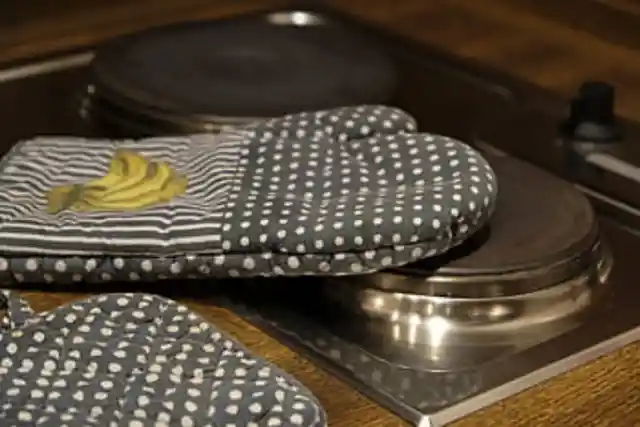
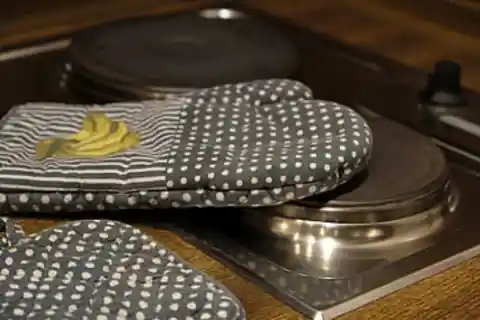
My first rule is that you mustn’t grab anything that‘s on the stove without a towel or some type of heat protection for your hands. Also, if a grease fire starts, don’t use water to try to put it out. Salt, baking soda, or a dry towel might work if you don’t have a fire extinguisher. In many cases, using water will just help to spread the flames.
A few other things to remember include: don’t season a liquid before reducing it; it’ll become too salty after you reduce it. Don’t use a cold pan to sear something; get the pan hot first, which will result in a better sear. Don’t use extra virgin olive oil when you’re using high heats, as it’ll burn. Finally, don’t cut meat immediately after cooking it; more of the juices will flow out, and the meat will become drier. Reddit user: atavaxagn
Baking Soda To The Rescue
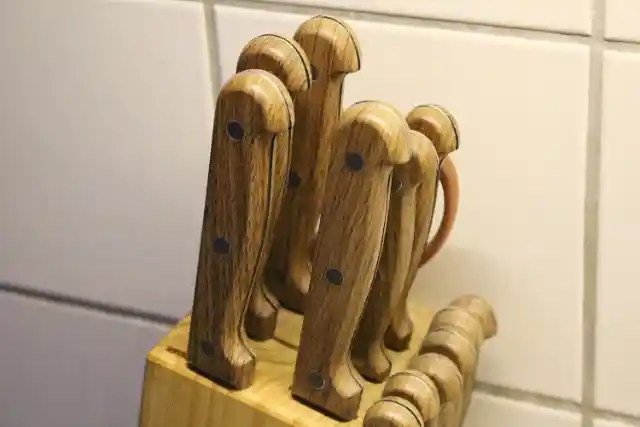

I’m reminded of two former roommates I had. One was great, and the other not so much. The good roommate had a set of nice kitchen knives with wooden handles, which he took very good care of. The chef’s knife went missing one day, and we found it sitting on a shelf in the garage about two weeks after it’d gone missing.
My second roommate had used it to open four very large boxes that UPS had delivered, and had simply left the knife lying in the garage. She would also put the good knives in the dishwasher, after being repeatedly told not to. The wood handles were looking very rough by the time I left. She also let the knives sit in water in the sink a lot, as well. Look after your knives if you have nice ones. Reddit user: BaconConnoisseur
Learn When Enough Is Enough
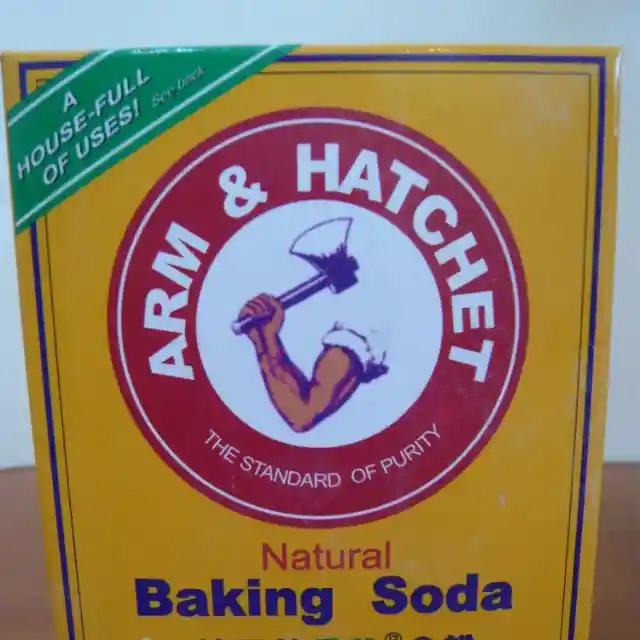
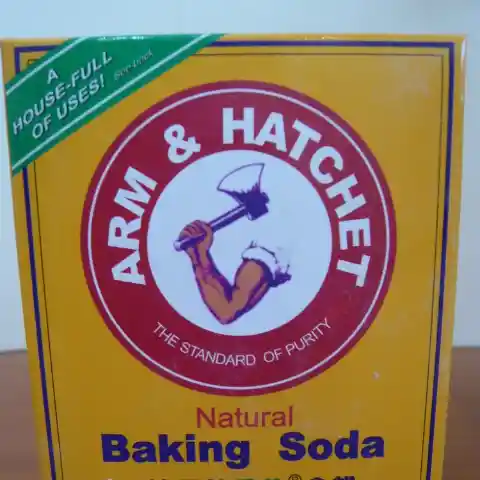
One morning, I was awakened by my now-fiancée telling me something was on fire. I looked into the kitchen, and saw that one of the burners had fire coming off it. We’d bought this bag of extremely greasy noodles the night before and, while cooking them, one had fallen into that bell-bit under the coil, where it caught on fire.
Still basically asleep, I calmly went over, grabbed the tub of baking soda I keep by the oven, doused the burning noodle with it, and went back to bed. The whole thing took about 30 seconds. Keep a container of baking soda on hand in the kitchen, as it can really help put out a fire like this, and keep you from panicking. Reddit user: Hardcore_EHS
Turn The Gas Off
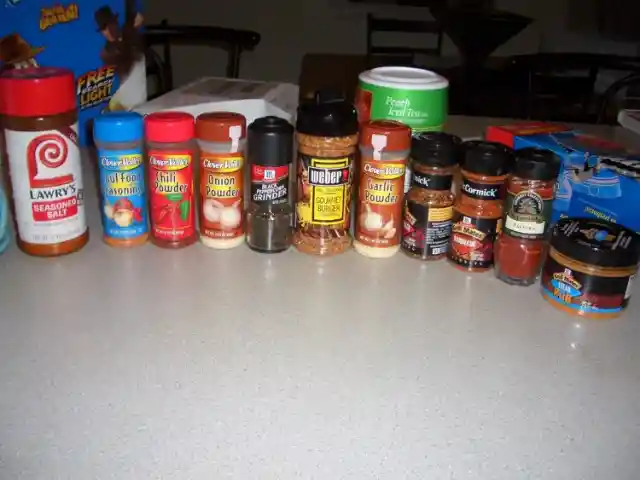
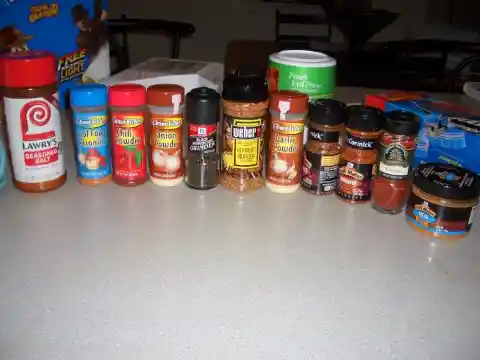
The most important thing I’ve learned in my years of cooking is to know when enough is enough. This is particularly important when it comes to seasoning. Remember, you can’t take it back after you add it to your food, or the sauce. My best tip is to just go slowly with your seasonings, and to have a gentle hand.
You can always add more, of course, but you can’t take it back. Don’t allow your food to taste like salty ocean water. You need to taste-test throughout the cooking process, to see what needs to be added and what doesn’t. Don’t wait until you’ve finished cooking to realize that it’s unseasoned, or that you’ve seasoned the food way too much. Reddit user: powerlesshero111
Unblocked
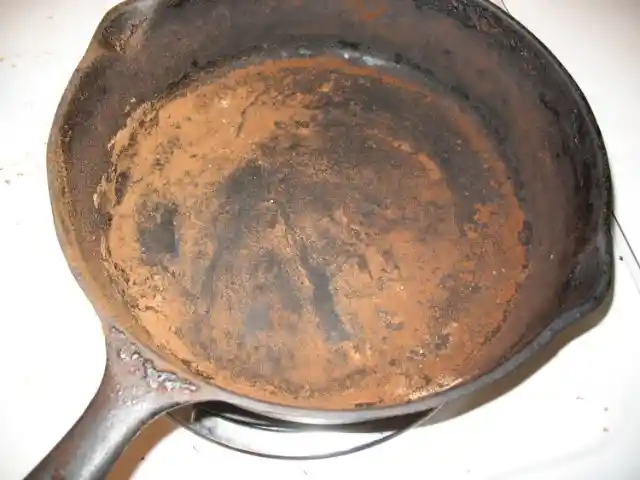
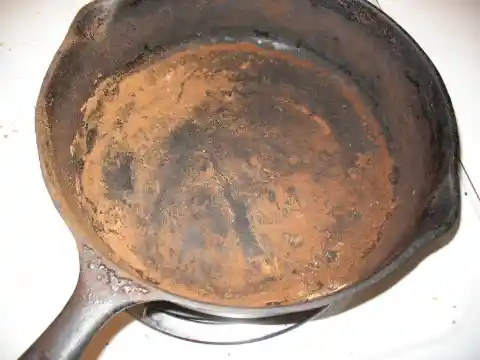
Keep an eye on your food, and never leave the kitchen while you’re cooking; you never know what’s going to happen. Also – and I speak from personal experience – make sure you turn off all the burners when you’re done. I finished eating one day, and then realized that I’d left a pan with oil in it on the burner. Luckily, it was just on low heat.
Unfortunately, I was stuck with about half an hour’s worth of cleaning after that. The burnt oil had stuck to the pan, and I was scrubbing it off for ages. Another tip is to keep the kitchen tidy as you go; this will help keep you from making mistakes, and making a mess that could cause a lot of chaos in your kitchen, resulting in an unpleasant meal. Reddit user: Gingersnap5322
It Was Knife To Know You
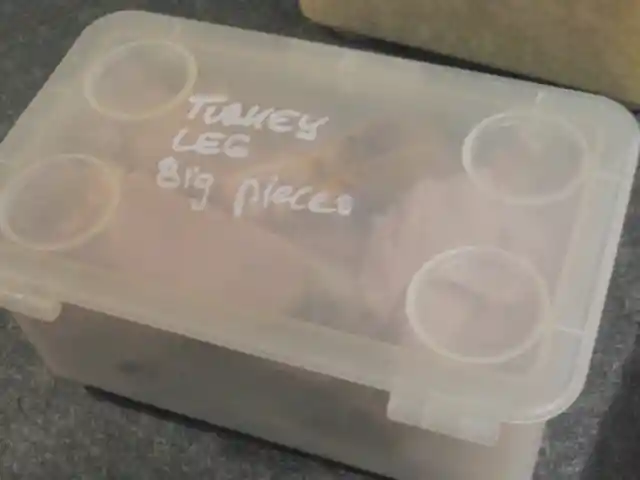
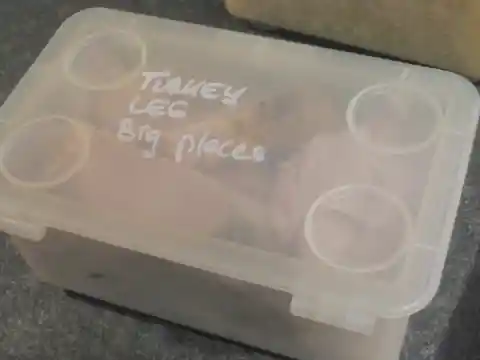
You don’t need a knife block. I’m a professional chef, I butcher 10 to 20 ducks a week, and I only have six knives. Your average home chef needs three knives, at most. You’ll definitely want a standard-length chef’s knife, and paring knife – which most home chefs never use correctly. You’ll also want one medium size blade for veggies; this is a nice additional knife to have around the kitchen.
Also, don’t forget to label and date stuff when you open it, and keep it near the front of the fridge or freezer. Keeping it near the front can be very helpful, as it’ll encourage you to remember, “Ah yes, I have this kale that I should use,” before you open something else. This little tip can really cut down on the wasted food. Reddit user [redacted]
Do Your Cooking Homework
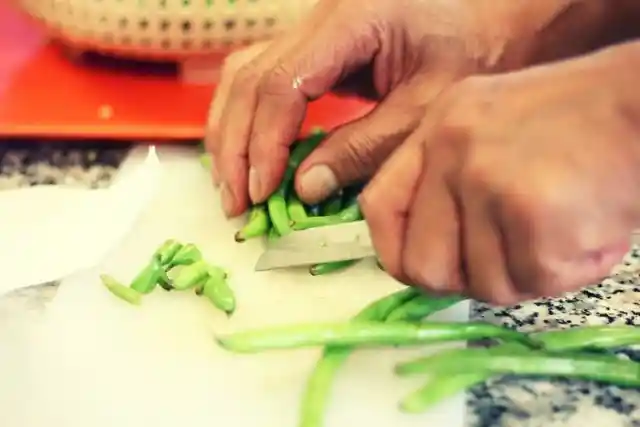
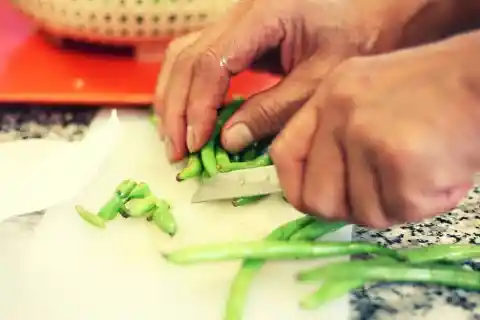
Here are some knife tips, and also some big “don’ts,” when you’re in the kitchen and using a knife. As they can be very dangerous, you need to know how to use them properly. Don’t hold an object with your fingers extended when you’re cutting it. You’re less likely to seriously cut yourself if you curl your fingers like a claw while cutting or chopping.
Don’t use a sharp knife on a metal surface – such as a pie tin or steel counter – glass, or marble. Don’t use a nice kitchen knife on anything other than food. A common offense would be opening a food package with it. Also – and this is a big no-no – don’t send a nice knife through a dishwasher. Washing and drying it by hand will help it last longer. Reddit user [redacted]
Don’t Press The Juices Out
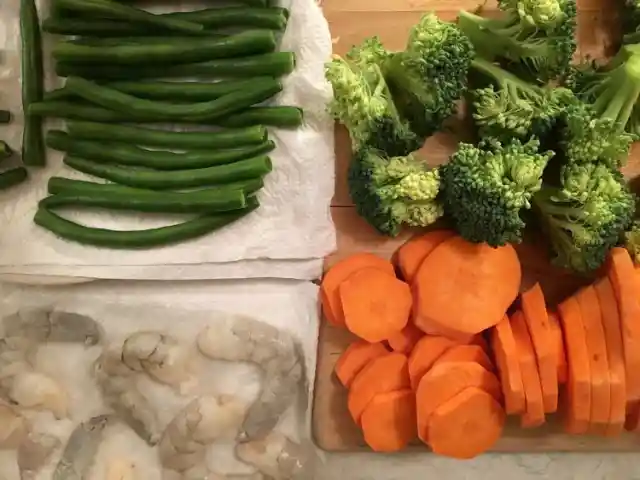
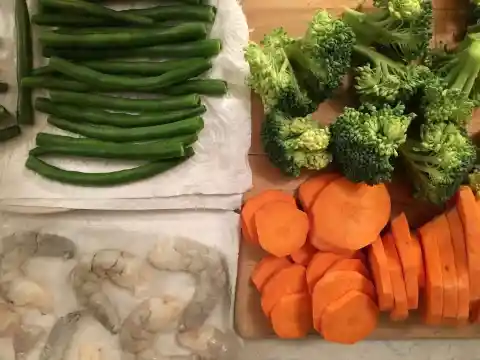
Never do your prep work as you go. Do all the prep work up front, and your cooking experience will be so much better. I always prep everything before I start cooking; for example, for Christmas dinner, I prep everything the day before so I can have a stress-free Christmas Day, despite being the chef. That’s also why cooking on TV looks so much easier – everything is prepped before the cameras start rolling.
There’s nothing more frustrating in the kitchen than trying to cook and prep at the same time. I chop all the veggies, and make all the sauces I need, on Sundays, to make cooking during the week a breeze. Then, I only have to clean my knife and cutting board once. Personally, I feel like I’ve hacked weeknight cooking. Reddit user: R8RH8RPatsLVR
Plan For Two Days
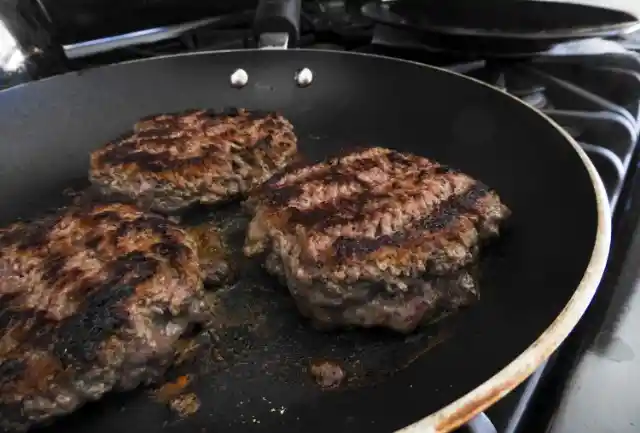
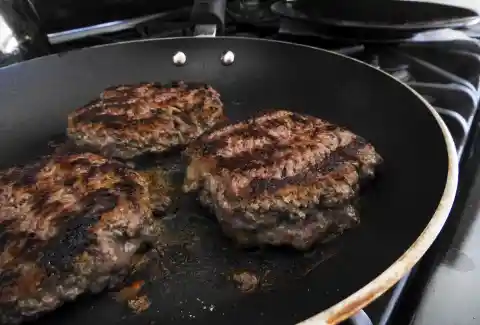
Don’t press your burgers down as they’re cooking – you’re releasing all the juice. Pressing down on it’ll give you a dry and tasteless burger. There are such things as smash burgers, but I believe that in those, you smash them at the beginning before the fat has a chance to melt, so you’re not smashing all the juice (and flavor) out.
Generally, stop pressing down on things when you flip them. You make pancakes lose their fluffiness, make the composition more “compact,” and – in meats – you push out the fat and “flavor” in the protein. And, ultimately, it doesn’t make the food cook any “faster.” Good things like pancakes take time in the kitchen, so just sit back, relax, and enjoy the cooking process. Let it cook, and do its thing. Reddit user: adamtwosleeves
Before You Add Salt


When it comes to shopping for food, if possible, try to buy key ingredients for your meals the day of, and cook two or three days worth. Chicken, for example, spoils fast – how fast will depend a lot on your grocery store. You save money by buying in bulk, and although cleanup/prep takes longer, it’s actually less work in the long run than trying to make something new every day.
I used to do one big shopping run a week, and it was impossible for me to properly use up all that food. Everything ends up tasting better when you use it immediately since most stuff on the shelf is ready to go right when you pick it up. Try to buy seasonal items. Fruit and veggies in peak season taste better than at any other time. Also, try to shop local. Reddit user: munk_e_man
Don’t Substitute Your Ingredients
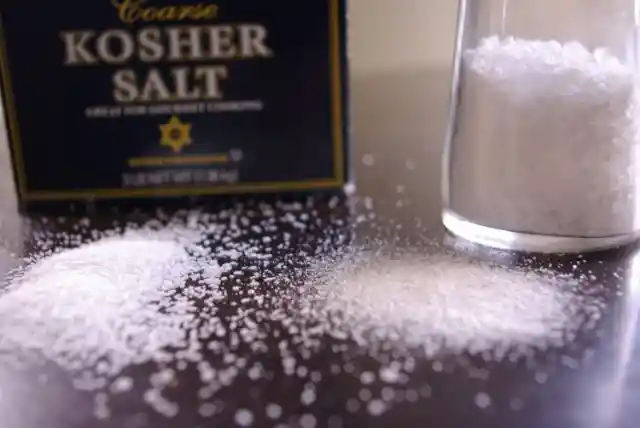
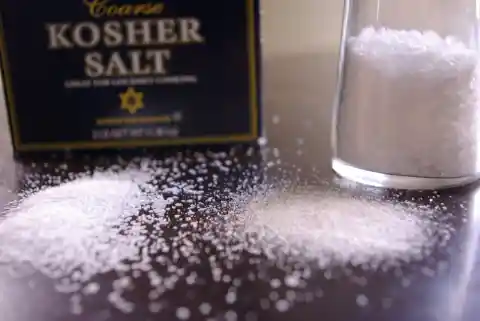
Adding salt as a matter of course, or just because the recipe says to, isn’t always the best way to cook. Taste first, and only add if needed. If you’ve used stock, or a stock cube in your dish, you might not even need salt; they already have it. My mother-in-law adds salt to everything; she doesn’t even taste the food that I’ve prepared, or even the food she’s made, before she starts sprinkling.
It doesn’t matter if it’s known to be high in sodium already. I’ve watched her dump salt on pizza, and even tortilla chips that are heavily seasoned already. It’s the most aggravating thing. Her taste buds must be fried, because it always looks like it’s just been Christmas, and snowed all over her plate, at meals. Reddit user: christmasbooyons
Wash Your Hands
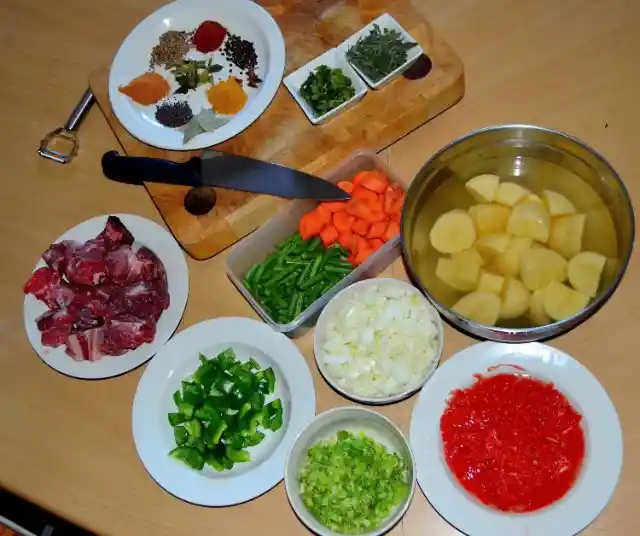
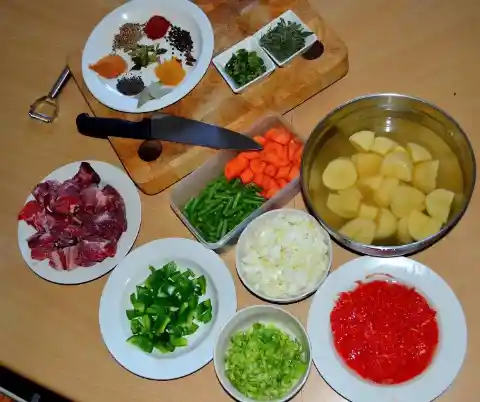
Don’t substitute ingredients in a recipe. This is especially true with things that you’re not used to working with, or know is a feasible substitution in the dish you’re preparing. I’m not talking about using garlic powder because you don’t have fresh garlic, even though fresh is still better; that’s not my point. I mean the completely crazy, wacky stuff people will change out sometimes.
It’s nuts to see reviews of recipes online that say, “Awful, this looked bad and tasted worse. Also, I was out of flour, so I used orange Tang instead.” I’m just astounded at what someone people will do when they’re cooking. If you know you want to make a certain meal, check that you have all the ingredients first, before you start cooking. Reddit ser: pandab34r
Allow For Some Improvisation
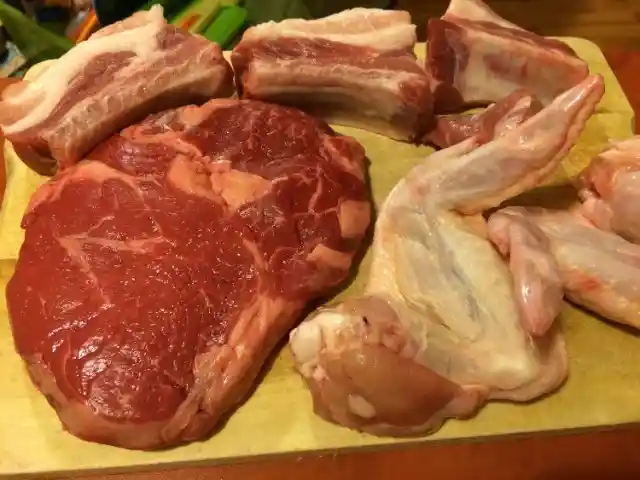
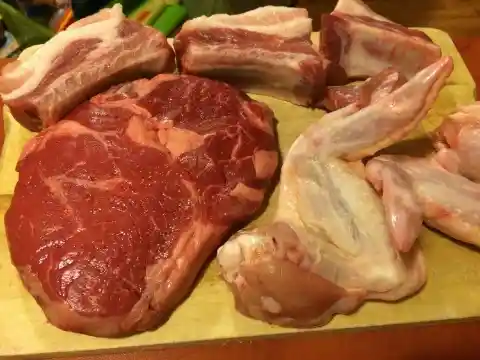
This one should be a given, but it’s not for many people. Don’t touch anything in your kitchen after handling raw meat. Wash your hands before touching anything else, or wear gloves and remove them after handling meat. It’s all about health and safety, even when you’re just in your kitchen at home. People can get sick so easily from cross-contamination, and it’s easily preventable.
I’ve seen so many YouTube videos where the cook immediately starts touching the spice containers; the outside of a bowl, pot, or panhandles; or the oven door handle. It makes me cringe. Just be aware of what you’re touching, and buy a hand wash to leave at your kitchen sink, so you’ll be able to clean up more easily when you’re cooking. Reddit user: GoGoWaffleMaker
Pay Attention To Cross-Contamination
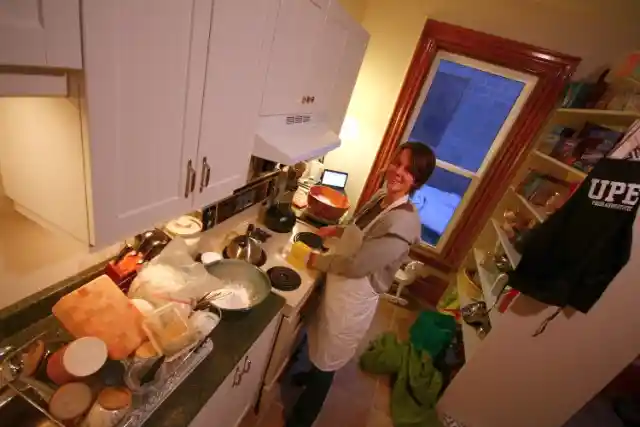
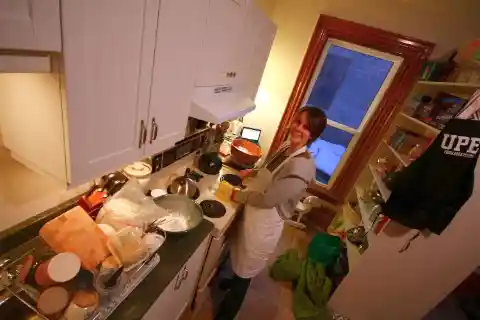
While cooking allows for a lot of improvisation, there are a few “don’ts.” This means never substituting dried herbs for fresh ones, and never using milk instead of heavy cream for sauces. If you’re trying to go for a low-cal version of a cream sauce, just go with olive oil and balsamic vinegar instead. The fat of cream allows it to hold up against the heat. Milk will split and curdle.
When it comes to onions and garlic, sauté them when it’s called for, to allow the heat to release the sugars and oils; putting them in a liquid without sautéing first will only result in a harsh flavor. If you’re unsure about something when you’re cooking, just do a quick Google search, and check what folks on the internet say, because sometimes they have great suggestions. Reddit user: [redacted]
When Chopping Your Vegetables
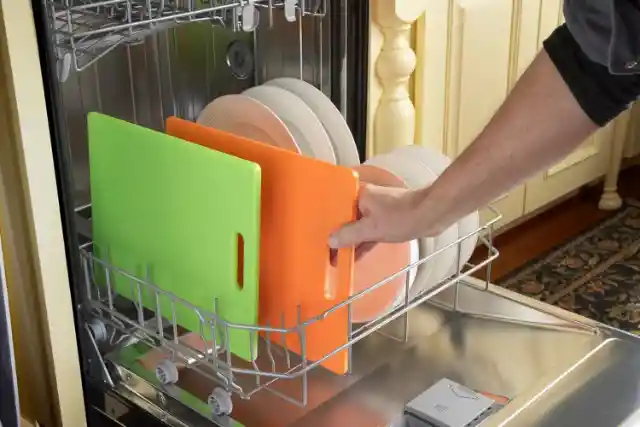
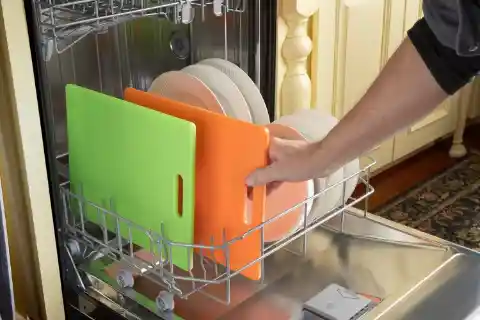
Poor sanitation in the kitchen is my biggest no-no. I can’t stand it. Use clean utensils at every step of the process, and when changing from raw to cooked food. Wash between steps if needed. Clean your cutting surface and counter after handling raw meat. Wash your hands before touching surfaces. Sanitize surfaces when you’re done with cooking on them.
These are things you learn in a commercial kitchen, and they become second nature if you’re conscientious. Home cooks who’ve never worked in food service, on the other hand, sometimes have no concept of cross-contamination. It seems logical to me, but I guess many at-home cooks just don’t want to bother. They should really pay more attention, though, especially if they have cats. Reddit user: veggiemaniac
Thanks For The Warning
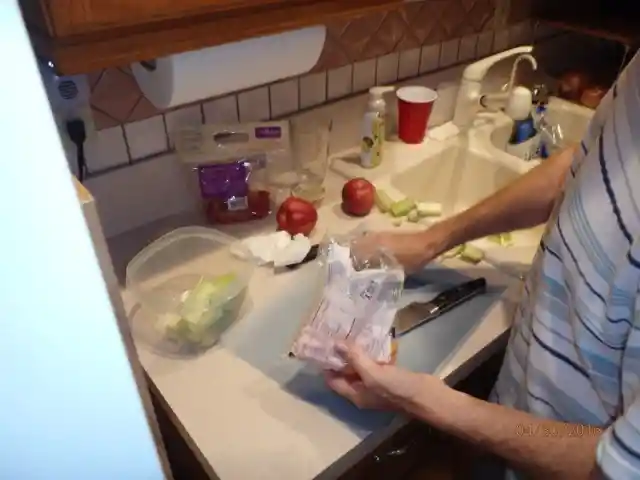
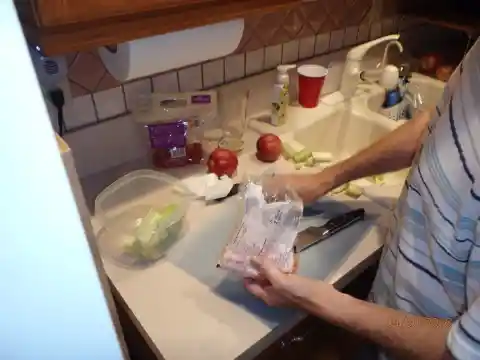
One thing to watch out for is chopping vegetables that are to remain raw on the same cutting board that’s used for raw meat. Technically, you should never cut vegetables and raw meat on the same board, but if I’m throwing onions in to cook with my chicken, I’m not getting another cutting board out. If I’m chopping lettuce for a salad, then you can be sure that I’ll be getting another board.
I understand that it makes a lot more dishes for you to clean up after the cooking process, but it’s a lot better than getting some kind of food poisoning, that will be worse to deal with in the end. You can also buy different color plastic boards, which you can use for different ingredients and types of food, to help cut down on the bacteria. Reddit user: relativelyinsanee
Invest In Your Kitchen Equipment
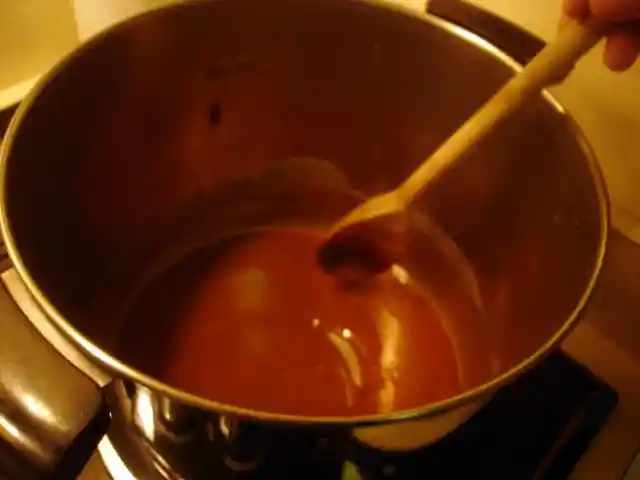
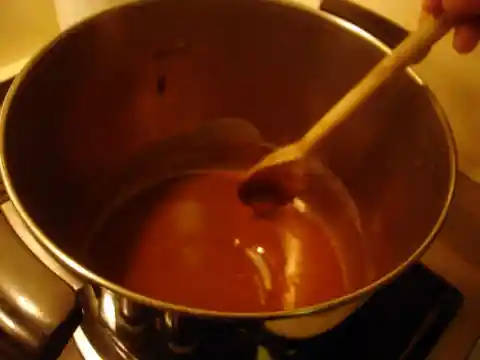
Don’t test the roux with your finger. I was making a nice dark roux for a seafood gumbo for my dad’s New Year’s party. Every time he walked by the cast-iron skillet, he’d ooh and ahh, and I’d say, “Don’t test it with your finger, it’s insanely hot, and will burn like crazy.” My dad, being “from Missouri” as he likes to say, just had to see for himself.
He walks through the kitchen, can’t take it anymore, and sticks his index finger into a cast-iron pan I’ve been putting in and out of the oven, and stirring on the stovetop, for over an hour. The roux, of course, sticks to his finger, and he screams, “Ahhh, that’s hot!” He realized his idiocy, and jokingly said, “Why didn’t you warn me?” Reddit user: IlovepeopleandDogs
It’s All About The Garlic
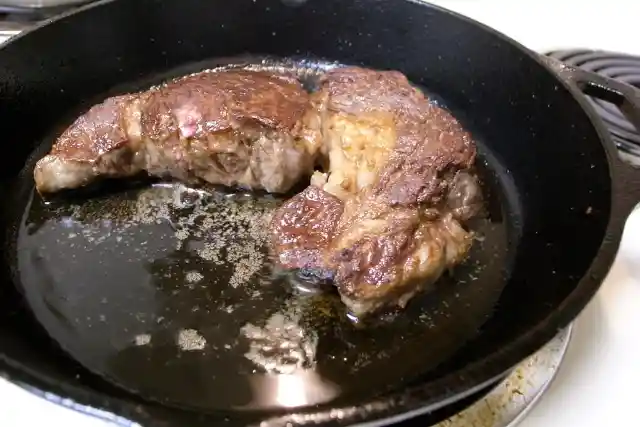
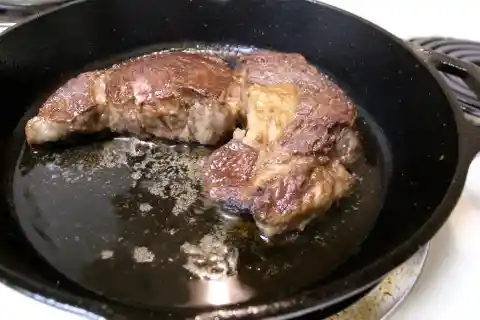
Using a regular or, worse, a nonstick pan for searing steaks is a big no-no. Please don’t. The temperature required to get a nice sear will ruin the special nonstick coating, rendering them useless at best – and toxic at worst. Use a well-seasoned cast-iron skillet if you have to use a stove; it only takes a couple of minutes to get a good sear with a ripping hot pan.
If you can’t do cast-iron, consider learning how to use your oven’s broiler. There’s a reason the Brits call it a grill, because it’s like an upside-down grill. It’s not exactly the same, but I’d say it’s the next best option behind cast-iron and using an actual grill. If you enjoy a good steak, it really is something worth investing in for your kitchen. Reddit user: Odarien
Cooking It To Perfection
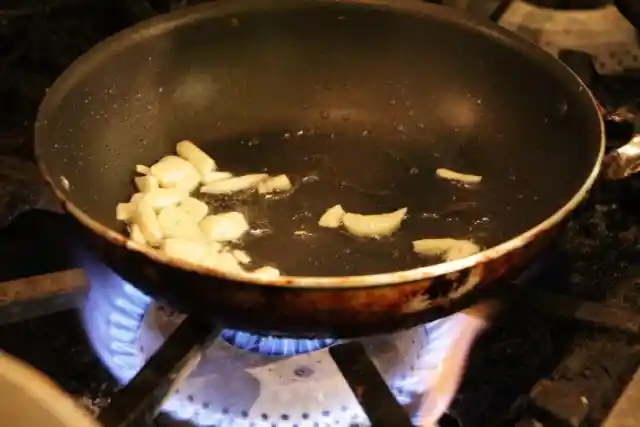
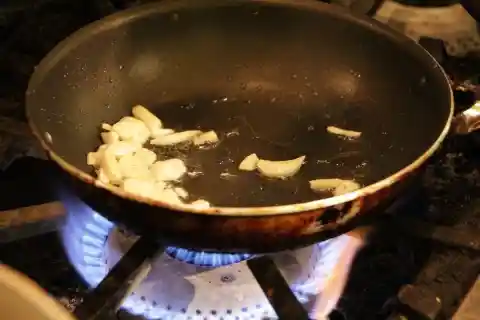
In most cases, throw in the aromatics first, please. It makes me crazy whenever I see people who just throw raw garlic into a recipe about five minutes before serving it. On the other hand, you should throw garlic in mid-way through vegetables with a long cook time. Garlic needs time to cook, sure, but if you throw it in first, it’s more likely to burn.
This is really only relevant if you have something like onions, which can take a while to sauté, but it’s definitely something you should consider. Garlic should go in before any large quantity of liquid is added. I used to throw the garlic in with the onions, and I still get sick thinking of the foul smell of burnt garlic. Everyone does it their own way, though. Reddit user: [redacted]
Potatoes Can Be Deadly
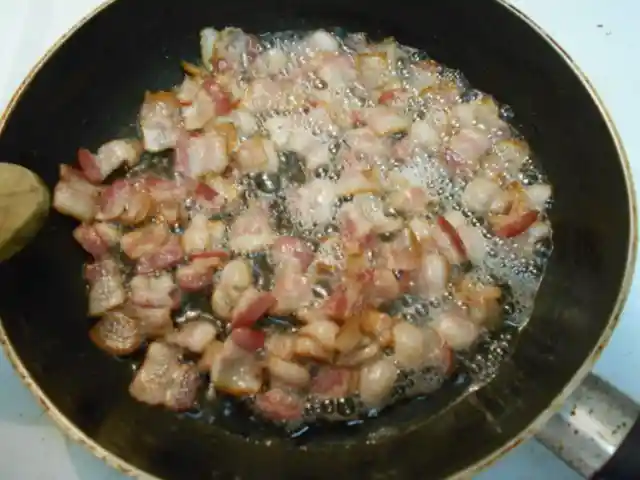
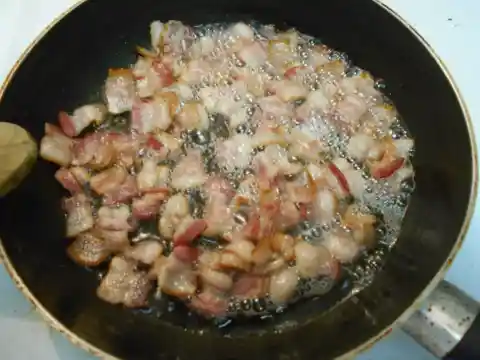
Resting is part of cooking. That bacon you cooked to perfection that you still have in the skillet? Yeah, it’s too late. You need to remove things from heat a little earlier than you’d think, so that the ambient heat continues to do its job. Otherwise, you’re overcooking it. The same goes for when you’re cooking steak, or even chicken.
The things that you cook will retain the heat, and they’ll continue cooking for a little while after, especially if they’re left in the equipment that you just used to cook them. That’s also why, with pasta, you should cook it al dente so that when you serve it, it’s perfect, delicious, and just the way the Italians would approve of it. Reddit user: CiD7707
You’re Just Asking For Stitches
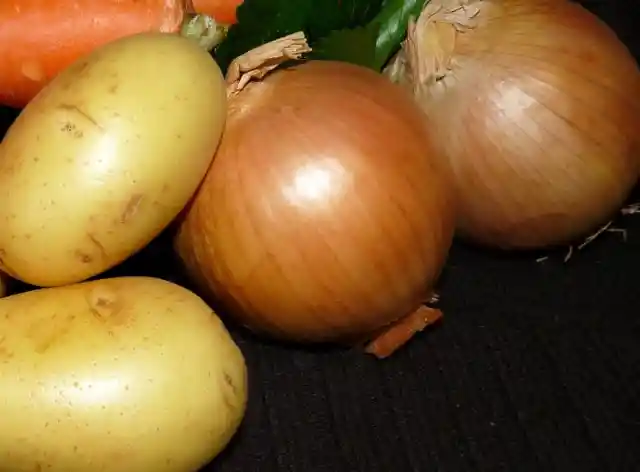
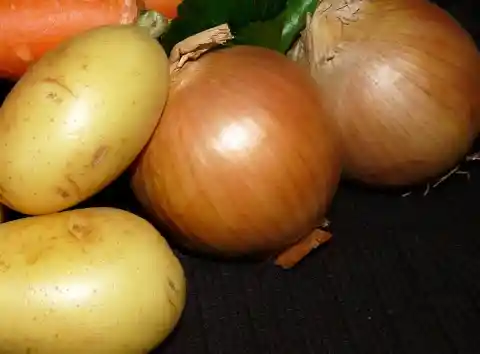
Don’t store potatoes and onions together. Why? Because, it’ll cause the potatoes to rot extremely fast. It’s the same reason why you shouldn’t be keeping bananas and potatoes together, but I hope you already don’t. Potatoes gone bad are not only putrid; when rotten, they’re one of the deadliest common food items you’ll run across. Yes, they are potentially worse than raw chicken.
This doesn’t mean raw chicken is safe; it just means spoiled potatoes can actually be deadly if you eat them. Don’t buy too much of something if you aren’t going to use it up quickly. Luckily, with foods like potatoes, you can buy them individually. Instead of buying a 2kg bag of potatoes that’ll likely go bad before you can use them all, just buy the amount that you’ll need for your next meal. Reddit user: AvalancheMaster
Understanding The Cooking Process
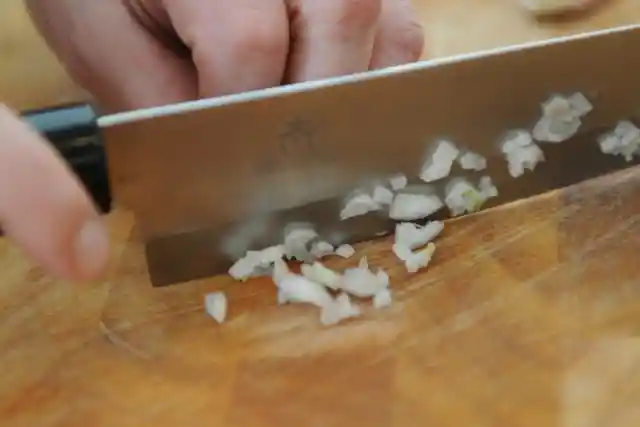
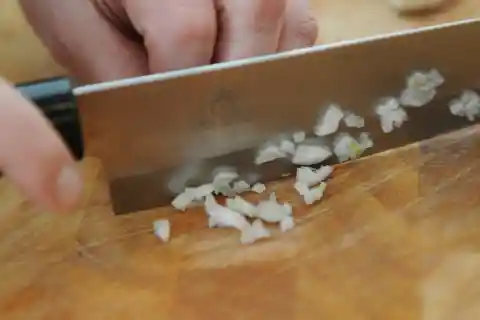
Always let the knife do the work. I’ve seen a lot of folks talking about dull knives (which is definitely the number one problem), but another thing I constantly see from new cooks is that they put the knife on whatever they’re cutting, and then push down like they’re working an antique printing press. It’s particularly nerve-wracking watching someone do this with something small.
Take garlic or an olive, for example; you’re just asking for stitches. Your knife has a long, sharp edge; draw it horizontally across the food, with a light downward pressure. If your knife’s decently sharp, it’ll do the rest of the work for you. If you’re unsure about the type of knife you’re using, just go on YouTube and watch some tutorials. Reddit user: VodkaEntWithATwist
Never Cook In The Microwave
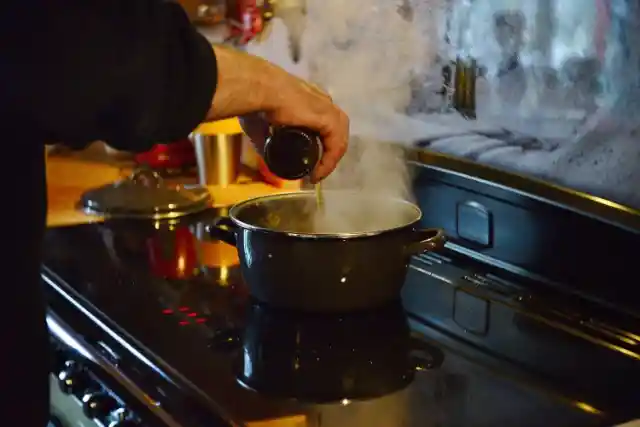
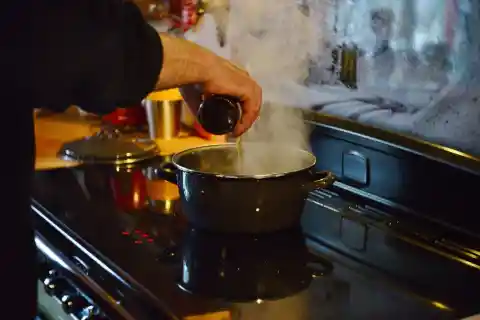
I’d say that one of the biggest improper moves would be not understanding what the cooking process really is. You are cooking the meat to a certain point, and for a certain time, to make it both delicious and safe to eat. Not every piece of meat is the same – and this goes for everything else you cook. There are directions on food packaging for a reason.
My brother steams and covers every food item he cooks. He doesn’t understand what “cooking” is. He thinks that heating food is the same as cooking it. He doesn’t understand that cooking times are different for different foods. He doesn’t understand sautéing, or giving something color, or making sure it’s juicy and still safe. There’s a lot of science and art in cooking. Reddit user: GoldMrSoul
Change It Up
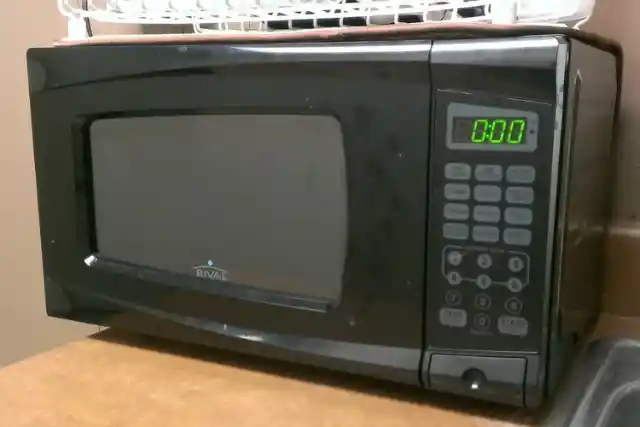
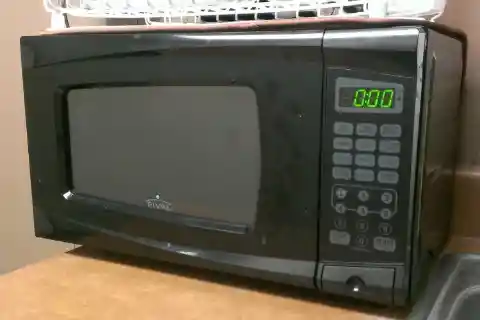
I’m a chef with 24 years of experience in the industry in multiple countries, and I’ll avoid all the obvious nitpicks about everything when it comes to domestic cooking, and keep it simple. I’ll say that a key difference with professionals is that we keep our knives insanely sharp, compared to home cooks and their domestic knives. It makes everything a lot faster when you have knife skills.
My other advice? Never use a microwave for cooking. Ever. The reason I say this is because the microwave is a tool for reheating, and nothing more. Also, never attempt to cook potatoes in the microwave – or anything else for that matter. This is what your stove is for. If you want to “cook” something in the microwave, let it only be microwaveable meals, where the expectation going in is that the food will taste terrible. Reddit user: NewLeaseOnLine
Throw Some More Cheese On It
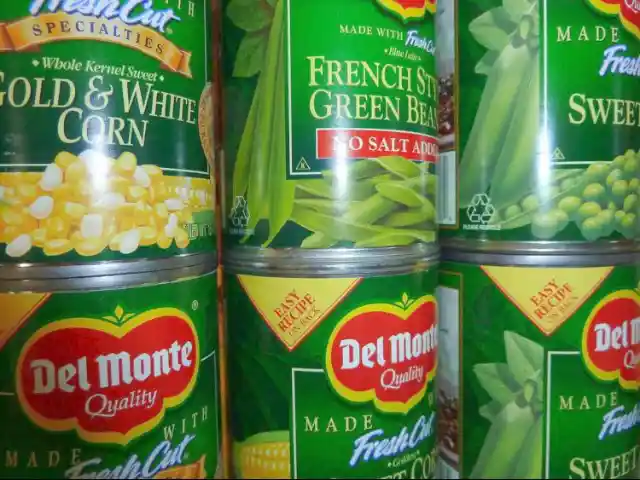
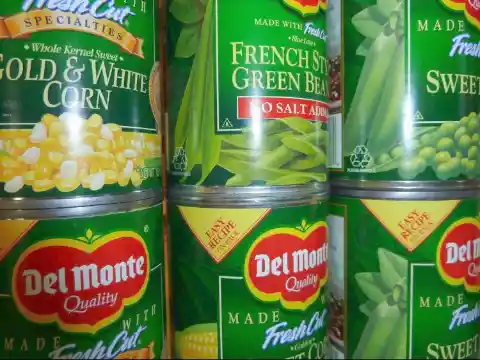
Canned vegetables aren’t the worst, but they’re close. A way to help with this is to just mix them in with some fresh produce that you’re cooking, or even have in your fridge. Another thing I can’t stand is that people just seem to eat the same thing over and over again throughout their lifetimes. Give your taste buds an adventure, and let them experience something new.
Americans, and some Europeans, seem to cook with the same twenty ingredients. Every time you go to the grocery store, challenge yourself, pick up a new ingredient, and try it out. What about beets, or mushrooms? Try out oyster mushrooms instead. Even grab a leek. Change it up, and you’ll be cooking and eating like a professional chef in no time at all. Reddit user: [redacted]
Clean Up Your Own Mess
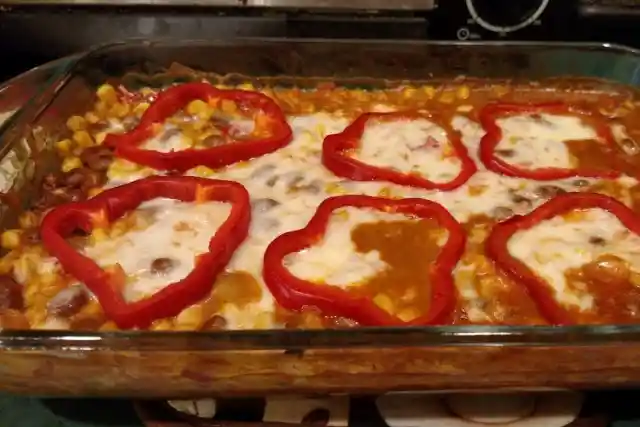
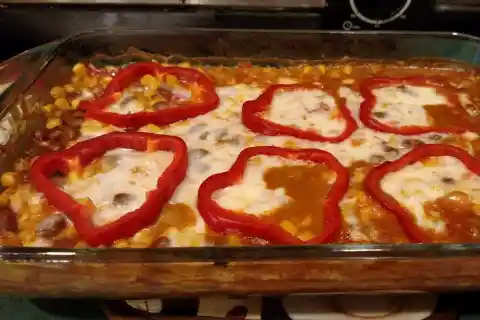
Putting cheese into everything just because you can is a no-no. Got some potato and leek soup? Oh yeah, let’s just chuck in some grated cheese. Some fried rice and vegetables? Hey, I know, let’s add cheese. A Sunday roast, with a nice roast chicken and some roasted vegetables? Hey, I have an idea; let’s put some cheese on those roasted vegetables while we’re at it.
Don’t get me wrong; I love cheese. But there’s a time and a place for it. If you’re one of those people that I’ve just referenced, I have two simple words for you: just don’t. If you love cheese that much, find and research dishes that actually need cheese. Like nachos, or macaroni and cheese – those are perfect dishes in which to use all the cheese you want. Reddit user: farrydarry
Don’t Use A Heat Shortcut
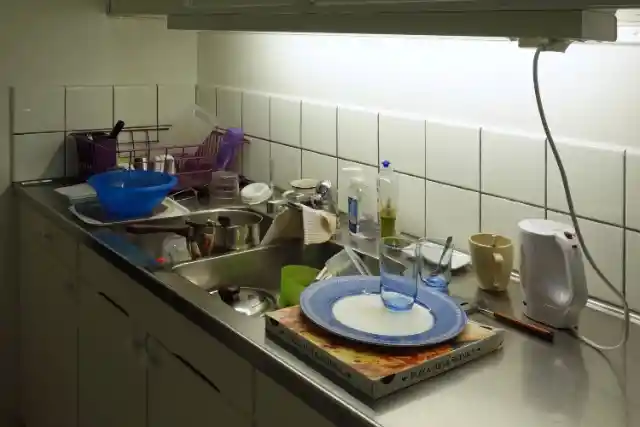
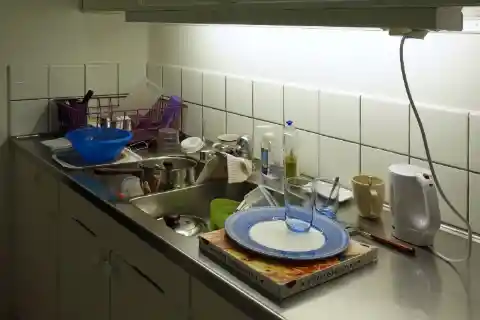
Don’t make intentional messes in the kitchen, and then expect your significant other to clean it up after you’re done. I’m all for “you cook, I’ll clean,” but if you make triple the mess, then you can do it all. By intentional messes, I mean stuff like setting a dirty spoon down directly on the counter, or not rinsing when done with something, resulting in a glue-like paste caking onto the tool or dish.
Also, don’t set a half-empty carton of chicken stock on its side, and let it spill all over the counter. Don’t throw lids to jars on the floor. No ripping the tab off a bag and leaving it on the counter or floor – and I can’t stand it when people aren’t being careful and spill ingredients on the floor. Also, chopping something up and leaving bits and pieces on the floor, and behind the fridge or oven, is a huge no-no. Reddit user: knoth3ad
Don’t Be Stuck In Your Ways
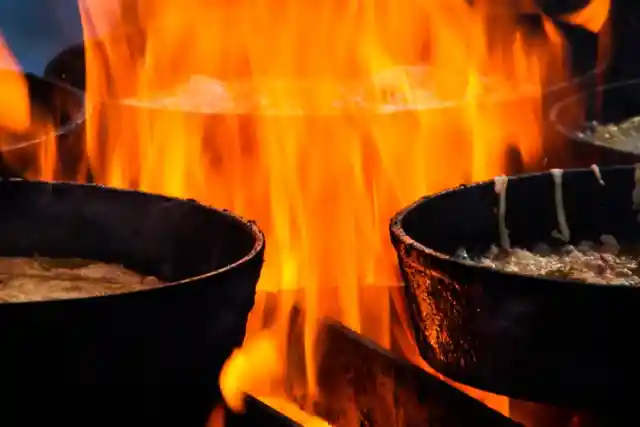
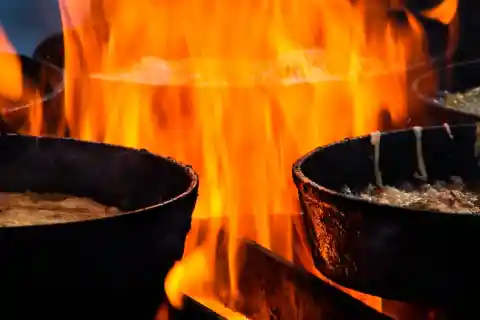
Cranking the heat to reduce the cooking time will leave you with a burnt outside, and an under-done inside. My mother-in-law is guilty of this. She’s always on the run, and never has enough time to cook, yet always insists on cooking meals that take 3x more time than she has available. She shortcuts every meal, and they always turn out horribly.
Just this weekend, the family went to an apple orchard for most of the day, and we were going to eat dinner at a nearby friend’s house. Instead of doing the logical thing – like planning a dinner that doesn’t need to cook all day, or something crazy like just ordering pizza – she decides she wants pulled pork. It’s so infuriating. Reddit user: Left4DayZ1
Kitchen Hacks
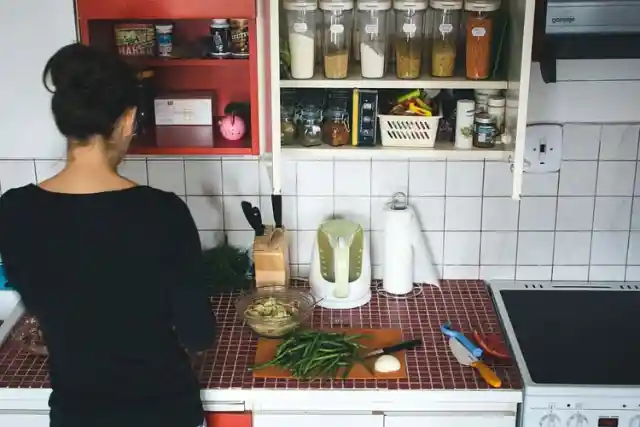
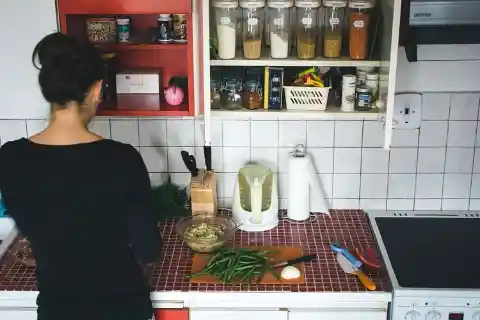
Don’t be stuck in your ways. Every moment is a learning experience. Sure, you can have that go-to recipe, but accept input, criticism, and just be generally aware. You can pick up new tricks and ideas, like a new downloaded app. Different situations can be rectified by different solutions, depending on time, equipment, and care. Also, don’t feel like it’s too hard to change – it isn’t.
And don’t be afraid to experiment with stuff. Obviously, don’t try something totally new when you’re cooking for lots of guests, and don’t feel like failing means you’re useless in the kitchen. If you end up messing up on a recipe, just learn from it, and move on. It’s usually not as bad as you think, unless you start a fire in the kitchen or something. Reddit user: [redacted]
How To Cook Pasta
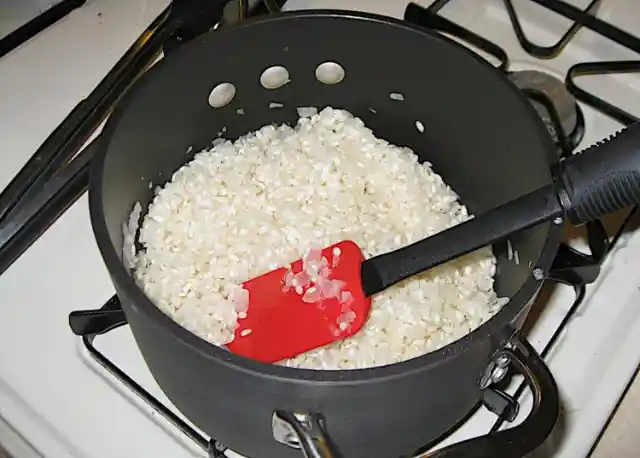
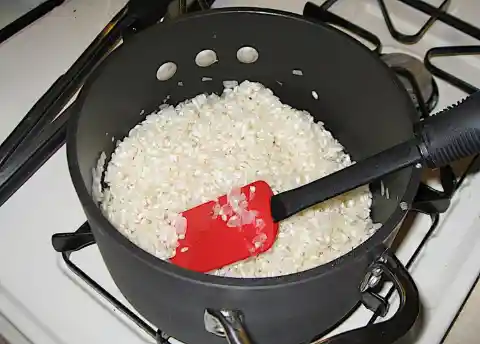
Stirring rice. When you’re cooking rice on the stove, and you bring the rice to a boil, just stick the lid on, turn the heat down, and don’t touch it. Take it off the burner after 15 minutes, and fluff it with the fork. If you stir it, it’ll make it sticky. This is a simple tip that will really change your rice when you make it, and serve it with your favorite dish.
There is a great deal of information available online for people who are amateurs, and want to try their hand in the kitchen. There are life hacks and kitchen hacks that’ll make it a lot of fun, and also a lot easier and more successful, too. I’m just a home chef, but tips like this have really changed my life and, more importantly, my cooking. Reddit user: OnlyPopcorn
The Chicken That Ended The Relationship
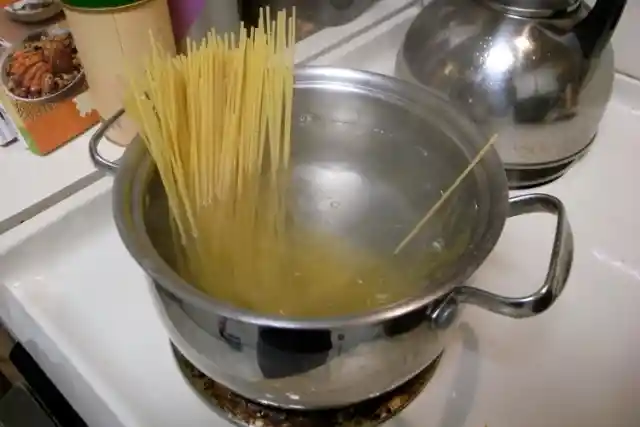
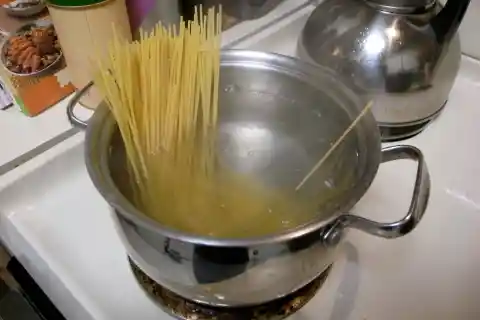
My mother doesn’t time pasta when she cooks it. She just tosses it in the water, and “It’s done when the sauce is done,” which means whenever she happens to walk by and see the sauce is boiling. It never occurred to me until I moved out and started cooking for myself that her pasta is almost always criminally overcooked.
She asked me why my pasta always tastes so different from hers, and I told her I cook it the amount of time the package says to cook it for. She’d never thought to look on the package for cooking instructions, and I think that explains why a lot of her meals turn out the way they do. I’m hoping she’ll start cooking it the correct way from now on. Reddit user: Vixenstein
Stick To The Recipe
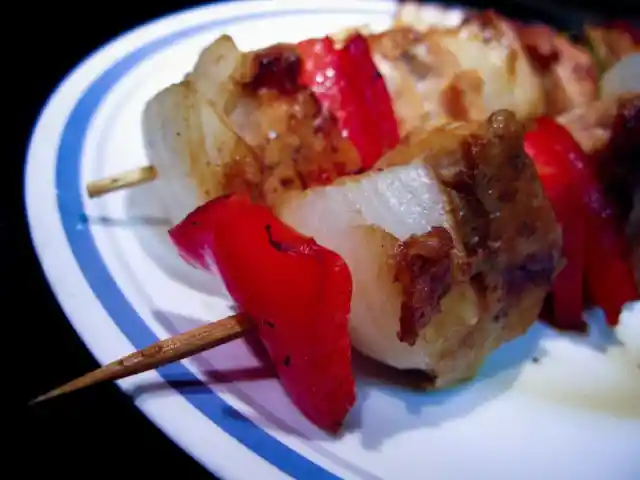
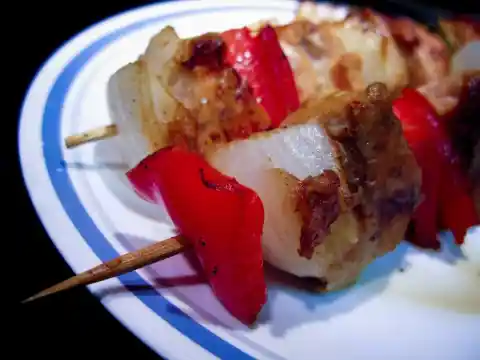
Don’t store raw meat with cooked meat. One time, this fool I was seeing decided to put cooked chicken shish kebabs on the same plate as the uncooked ones. They were all touching each other, and mixing their spices and things. I couldn’t tell there were uncooked ones because they were all coated. That is, until I took a huge bite out of one.
That’s when I realized that I had eaten raw, two-day-old chicken. That’s not the main reason we ended things, but it certainly was a factor. It’s so easy to be clean and aware when you’re cooking – it’s just not that hard, people. It gives me anxiety thinking of what goes on in the restaurants that we eat at every day, because this stuff happens there too. Reddit user: Soggy-Job
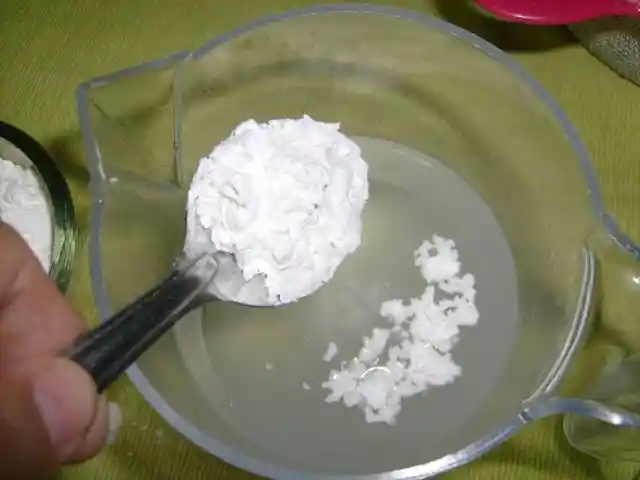
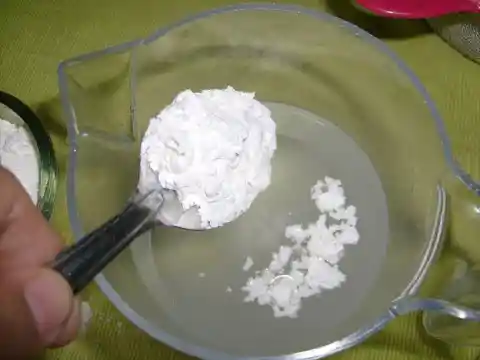
A huge no-no is not mixing your thickener – this means flour, corn starch, arrowroot, etc. – with something, usually water, before adding it to the dish. I saw a chef do this once, and I was dumbfounded. Also, never put raw flour in a sauce. It just doesn’t work, and it’ll make you mix and mix until your arm feels like it’s about to fall off.
Know the method behind what you’re making beforehand, and it’ll help to prevent stuff like this from happening. If you know when you should put in the thickener, you won’t end up with a disaster of a meal. If you know what you’re doing pretty well, you can go ahead and wing it; but if you’re still unsure in the kitchen, just stick to the recipe and follow it exactly. Reddit user: Iceehawk